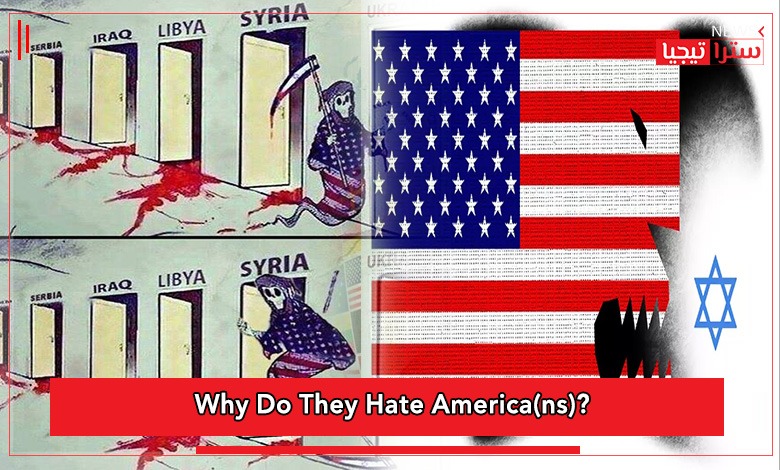by Saskia Glas and Niels Spierings
Department of Research, Strategic Studies and International Relations 13-09-2024
In reaction to the terrorist attacks on the Twin Towers on September 11, public debates droned an ongoing refrain of ‘why do they hate us?’. Consequently, although obviously not every Arab person who dislikes America commits or even supports terrorist attacks, September 11 brought about a surge in scholarly attention to the causes of anti-Americanism.
Generally, it is argued that we should look for the cause in American interventionism. American foreign policies would (be perceived to) harm Arab countries and their citizens, engendering a widespread dislike of not only particular American policies but also the United States more generally. At the same time, it is said that Arab people direct their hate solely towards America, the country and its policy, not towards Americans, the ordinary citizens. Yet, few works have empirically investigated the degree and causes of such societal anti-Americanism, as the focus generally is on a dislike of the United States as a political entity.
They Hate Americans Too
In our recently published Political Studies paper, we study the causes of both political and societal anti-Americanism, using survey data of over 58,000 Arab citizens in the Middle East and North Africa (MENA) from the PEW Global Attitudes Project (GAP) and the Arab Barometer (AB). First of all, and contrary to scholarly consensus, we find that both political and societal anti-Americanism are quite widespread in the Arab region (see Figure 1 below). Although Arab people in general have an unfavourable position towards America, they are pretty wary of American people too. What is more, political and societal anti-Americanism seem to be strongly related – too strongly to consider them disconnected opinions that have completely separate causes.

Figure 1: Mean anti-Americanism by country. Source: Glas & Spierings, ‘Connecting Contextual and Individual Drivers of Anti-Americanism in Arab Countries’, Political Studies (2020).
Driving Away Potential Allies
Our analyses also show that unfavourable attitudes towards America and Americans have similar causes. American interventions – be they troop deployment, military aid, or economic investments – help to explain why publics are not only more politically but also more societally anti-American. This paints a two-sided picture. Anti-Americanism is partly caused by the actions undertaken by the US government. However, it is not just ‘the United States’ that is held responsible for the interventions; ordinary Americans are blamed for these actions as well. This suggests that there is an understanding of the democratic responsibility the American populace holds for their government’s actions.
Of course, not all Arab citizens hold the same views or react similarly to American interventions. This brings us to an especially bitter conclusion from the results – American interventionism most strongly squelches pockets of good will. When the US intervenes, it spawns anti-Americanism particularly among those groups poised to be more favourable to America(ns). For instance, we found that non-Muslims are on average rather favourable towards America(ns) compared to Muslim citizens. But, as illustrated in Figure 2 below, the more the US intervenes in a country the smaller this ‘Muslim gap’ in anti-Americanism becomes.

Figure 2: Estimations by multilevel regressions controlled for individual (socio-economic) characteristics. Graph is solely figurative; the vertical axis does not cover the whole scale. Source: Glas & Spierings, ‘Connecting Contextual and Individual Drivers of Anti-Americanism in Arab Countries’.
In other words, ‘they’ do not hate us. This example once more stresses that citizens across the Arab region are neither all the same, nor united in their hatred of America(ns). Pockets of good will can be found across the region. However, when the US intervenes, it not only strengthens the resolve of its enemies; it actually drives potential allies away.
Reconsidering Foreign Policy
The simple conclusion of our study could be that Arab citizens detest America, and there is nothing the US can do about that. But that conclusion simplifies the complexities that those designing and assessing foreign policies would be wise to consider: the interrelatedness of societal and political anti-Americanism and their causes. For instance, thinking that interventions only fuel political anti-Americanism is dangerously naïve. US interventions decrease empathy with US citizens, while this empathy with Americans might be an important barrier against (not judging) terrorist attacks. To keep pockets of good will, and perhaps even strengthen alliances, the US should think twice about repeating the same interventionist policies in the region.

